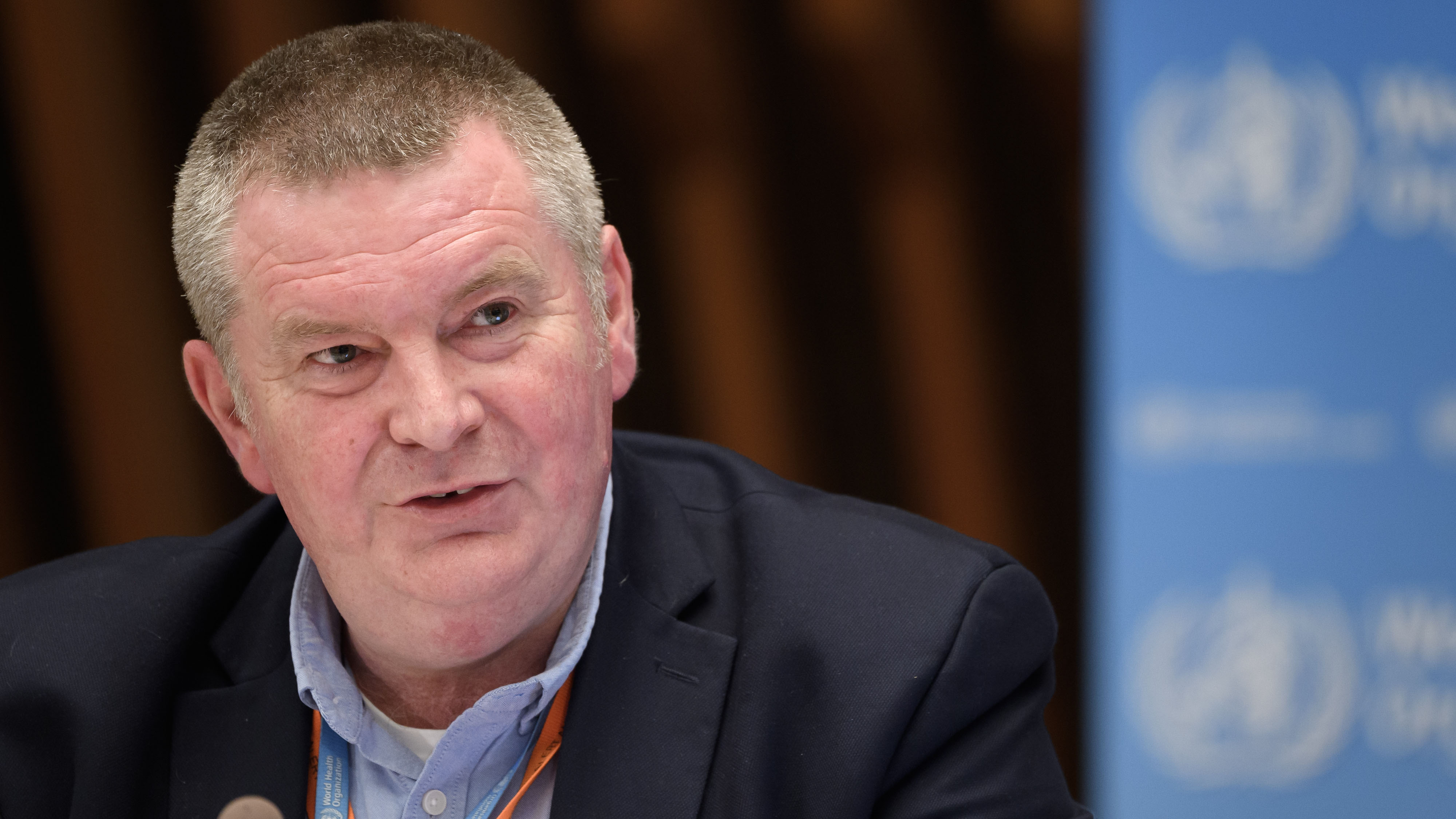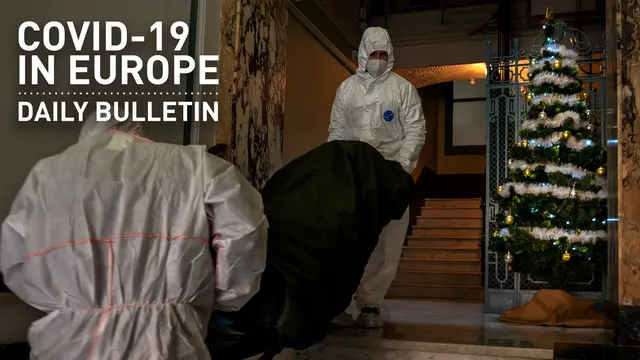TOP HEADLINES
-
The World Health Organisation's Michael Ryan has said the COVID-19 pandemic may "not necessarily the big one," because of its relatively low case fatality rate compared to other emerging diseases, and called for the world to use this as "a wakeup call."
-
Spain is to set up a register of people who refuse to be vaccinated and will share the document with otherEuropeanUnion member states ,accordingto the country's Health Minister Salvador Illa.
-
Russia's government statistics agencyRosstatsays the country's death toll is more than three times higher that previously reported. New figures show that more than 186,000 people have died from the virus, up from 55,265 the country officially reported, making it the country with the third-largest number of fatalities in the world.
-
Spain's death toll has passed 50,000 after 298 new fatalitieswerereported in the past 24 hours, bringing the overall tally to 50,122.
-
Belarus has begun administering Russia's Sputnik vaccine with up to 200,000 people expected to be inoculated in the first stage of the program, according to the country's Health Minister Dmitry Pinevich.
-
**Germany is facing a growing threat of attacks by right-wing militants who deny the existence of the pandemic **and its subsequent health risks, according to senior securityofficial,Burkhard Freier.
-
Germany has recorded a further 852 deaths in the past 24 hours, bringing the death toll to 30,978 while infections also rose by 12,892.
-
The head of one of England's biggest teaching unions, Geoff Barton, has called for schools in the UK to remain closed until testing schemes have been set up properly to avoid a further spread of the virus among children.
-
Further nationwide restrictions are needed in the UK toprevent a"catastrophe" at the start of 2021 ,according to government advisor and infectious disease professor, Andrew Hayward.
-
The number ofdeaths in theNetherlands hasincreased at the highest rate since World War II this year as aresult of thepandemic , the Dutchnational statistics office (CBS) has said.

**CLICK: **
WHY MAKING AN IKEA BOOKCASE CAN HELP UNDERSTANDING OF COVID-19
ACROSS EUROPE
Toni Waterman in Brussels
Health officials in Belgium are considering giving citizens just one dose of the Pfizer/BioNTech vaccine in an effort to vaccinate as many people as possible, as quickly as possible. The jab is meant to be delivered in two doses, three weeks apart, although there is evidence that one dose offers sufficient protection for much longer.
The government sees two main benefits to this approach: a larger portion of the population could be vaccinated in a shorter period of time and the country could reach herd immunity much quicker. It's estimated that the entire Belgian population could be vaccinated by the summer if everyone received one dose before receiving the second.
The country's "vaccination taskforce" will issue a decision in the coming weeks. And health experts will need to weigh in on the potential consequences of delaying the second dose.

The World Health Organisation's Michael Ryan has said the COVID-19 pandemic is severe, but may "not necessarily the big one." /AP
Stefan de Vries in Amsterdam
Anyone travelling to the Netherlands will have to show proof a negative test, within the last 72 hours. Airlines, railways and other transport companies will make checks before boarding.
Without the results, no one is allowed to enter the country while random checks will be carried out upon arrival.
The Netherlands is now the only country in the EU where vaccination has not started yet. The government needs more time to prepare the programme and has said it will now begin on January 8. One of the reasons may be lack of capacity in hospitals. About a thousand soldiers are already on standby to assist in Covid-19 test centres and the vaccination programme.
On Monday, there were 7,453 positive cases. It is the third day in a row that the number of infections is significantly lower than the number reported one day earlier (9,108). The number of people admitted to the hospital has increased by 152 to 2,573 in the last 24 hours.
Linda Kennedy in Budapest
Hungary's health experts are continuing to assess the use of the Russia's Sputnik vaccine, as 6,000 doses arrive in Hungary.
The doses of the Russian vaccine were taken by truck to the National Public Health Centre where, it was said, Hungarian professionals would have 'another opportunity to decide how to use the vaccine.' In November, Hungary was the first European country to receive samples of the Russian vaccine.
In a statement, Hungary's foreign minister said the country would do its best to create an effective vaccine 'either in the west or in the east' that would 'be brought to Hungary the fastest, according to the decision of Hungarian experts'.
Any drug marketed in EU member states must be approved by the European Medicines Agency. The Russian vaccine has not been.

Spain's death toll has passed 50,000 after 298 new fatalities were recorded in the past 24 hours. /AP
FROM OUR GLOBAL COLLEAGUES
**CGTN Europe special: **
The Alps - Timeless and changing
CGTN China:
China's COVID-19 vaccine race through CGTN reporter's eyes
CGTN America:
Novavax starts late stage trial of COVID-19 vaccine in U.S.
CGTN Africa:
South Africa moves to level 3 COVID-19 lockdown as virus surges
Sign up
here
to get the COVID-19 Europe bulletin sent directly to your inbox.
CGTN Europe has been providing in-depth coverage of the novel coronavirus story as it has unfolded.
Here
you can read the essential information about the crisis.
 简体中文
简体中文

